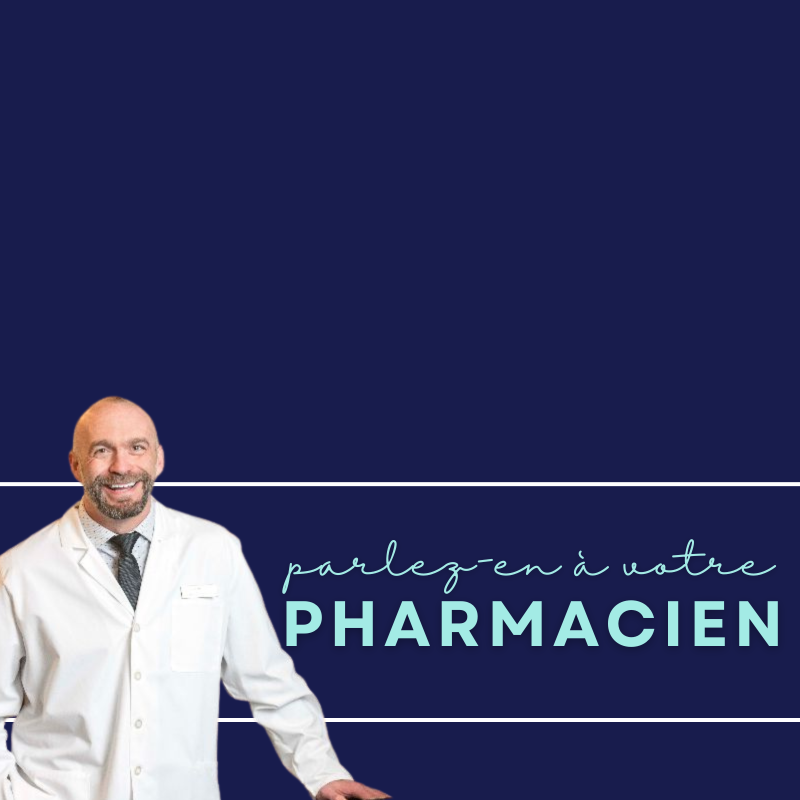
Q: How do I access naloxone in the community?
Naloxone is a medication that can temporarily reverse the effects of an opioid (i.e. fentanyl, heroin, oxycodone, morphine, hydromorphone, codeine) and allow time to access emergency medical treatment. Timely administration of naloxone after a suspected overdose saves lives and for this reason, it needs to be easily available in the community.
When someone takes too much opioid, either accidentally or intentionally, it can slow down breathing to a dangerous rate and even lead to death. Naloxone temporarily reverses this effect. It can be given to any person, pediatric or geriatric, suspected of an opioid overdose.
If you use opioid medications chronically for pain control, if you think you are at risk of overdosing on an opioid because of your manner of use or if you have someone in your life who is using an opioid, talk to your pharmacist. A pharmacist will be able to answer your questions about naloxone.
Signs and symptoms a person may have overdosed may include: if they can’t be woken or don’t respond to pain (i.e., pinching), they are not breathing at all or are breathing very slowly, their lips and fingertips are turning blue or purple, they are making an unusual gurgling or loud snoring sound, and/or their pupils are very tiny.
If you suspect someone has overdosed on opioids, call 9-1-1. Do not hesitate or delay. This is a medical emergency. First responders are trained to recognize the signs and symptoms of opioid overdose and to provide treatment needed as a temporary measure until medical treatment is available.
Naloxone is considered necessary as part of care for someone experiencing or at risk of an opioid overdose. It should be used when an opioid overdose is suspected.
In 2020, naloxone was administered to 317 suspected opioid overdoses in New Brunswick and 125 of these patients responded to treatment; that’s about 10 opioid-related overdoses per month. According to data from Ambulance New Brunswick, during the first 9 months of 2022, 25 people died of suspected accidental overdose. (Opioid and Stimulant Related Harms in Canada report, March 2023).
Barriers to accessing naloxone in New Brunswick may include: the cost of the drug and administration supplies, perceived or actual stigma by the public and health care professionals, lack of community education about where to get naloxone, and about how to use the medication, and delayed response in naloxone administration because of the rural geography in New Brunswick.
In New Brunswick, naloxone is available as a Schedule II medication. Schedule II medications are available without a prescription behind the pharmacy counter and require interaction with a pharmacist for sale. The drug is available as an injection or an intranasal preparation. NarcanR (naloxone) nasal spray 4 mg (2 doses per device) costs about $250. Each ampule of injectable naloxone 0.4 mg/ 1 ml costs about $S20. An injectable kit generally contains two ampules and supplies for injection, which costs approximately $80.
Naloxone take-home kits are available free of charge in Nova Scotia, Quebec, Ontario, and Alberta. In Nova Scotia, the public has access to naloxone (with training) at several community pharmacy locations.
As part of a research project, naloxone take-home kits are being dispensed free of charge from an interactive dispensing cabinet, located outside, in Moncton, New Brunswick. During the first half of 2022, 1180 kits were distributed in New Brunswick communities. To date, 679 kits have been dispensed from the Interactive dispensing cabinet since 2020.
Opioids are safe medications when used appropriately. They have addiction potential and they have side effects including dangerous depression of your breathing when accidentally overdosed or intentionally misused. Your community pharmacist will care for you without judgment. Our role is to educate you about how to safely use your opioid prescription. Your pharmacist cares about you and we will work with you to keep you healthier, while minimizing your chance for opioid overdose.
If you need a free naloxone kit, injection supplies, or clean needles, contact a harm reduction center such as Avenue B, ENSEMBLE, AIDS New Brunswick, or Recap.
Dr. Kevin McLaughlin (PharmD, BScPharm, BSc, ACPR) practices at Kennebecasis Drugs, in Rothesay N.B. His opinions expressed in this column are published for educational and informational purposes only, and are not intended as a diagnosis, treatment or as a substitute for professional medical advice, diagnosis or treatment.